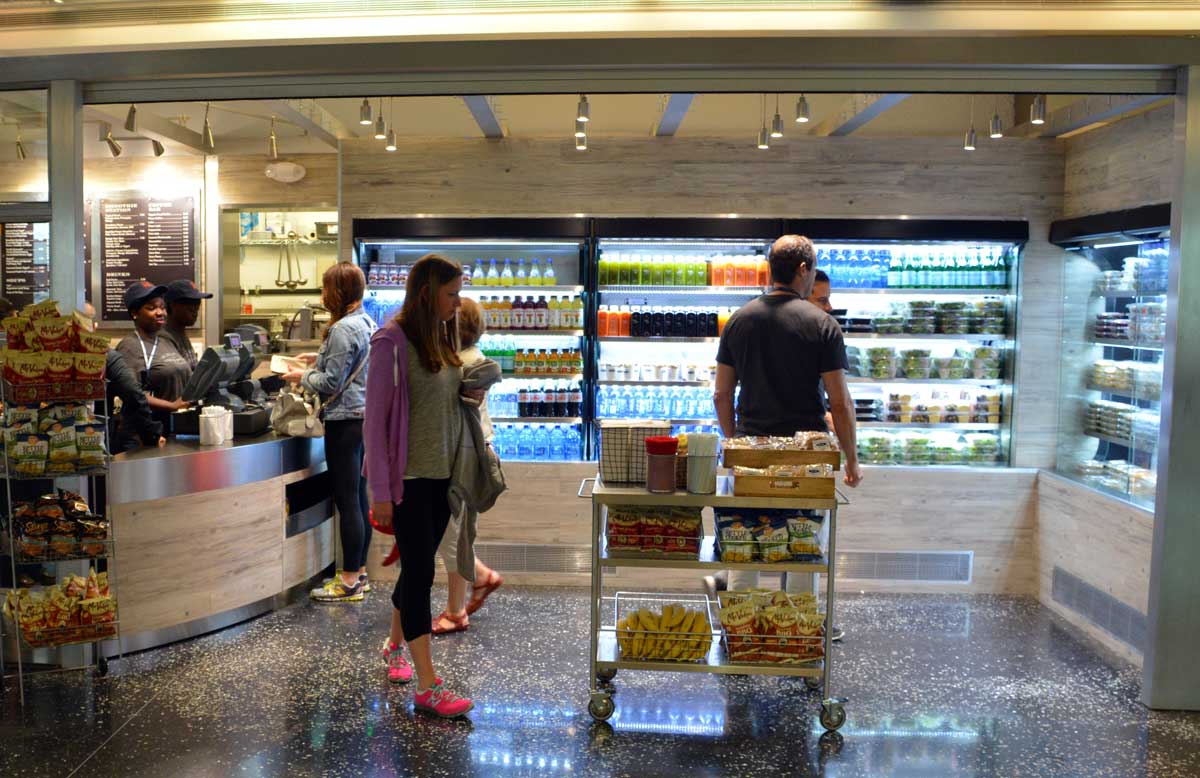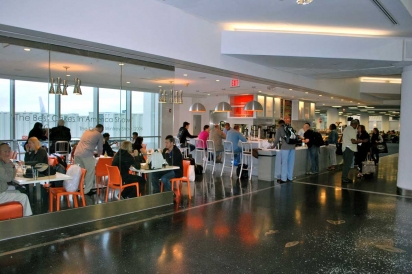Farm-to-Table Takes Wings: Local Produce at MIA
Airport food at Miami International Airport is not only getting healthier – it’s also, increasingly, locally sourced. Icebox Cafe, long a Miami Beach favorite at Sunset Harbour, is now using local greens and vegetables for salads at its MIA restaurant, which opened in 2010. They’ve also just opened the Mediterranean Kitchen inside the new North Terminal Marketplace. There’s also an Icebox Cafe at Dallas/Fort Worth (DFW).
Farm-to-table is more than just a buzzword for Icebox Cafe founder and owner Robert Siegmann. “Icebox’s recent recognition as farm to table in airports is an extension of what the company has been doing since its inception in 1998,” he says. “We will continue to source locally no matter which market we operate in, not because it is trendy, but because we feel that it provides the best quality to our customers while supporting the local industry.”
Icebox Cafe may be the first airport restaurant certified by Florida’s “Fresh from Florida” program as a provider of locally sourced foods, but officials – and the traveling public – can look for more to come.
“Now more than ever, travelers are expecting world-class airports to provide the freshest, healthiest food options possible, so to that end, we congratulate Icebox Cafe on becoming certified as Florida Fresh and Redland Raised,” says Miami-Dade Aviation Director Emilio T. González. “We look forward to more restaurants at MIA increasing their use of locally grown food, which obviously benefits our local economy as well.”
Elsewhere in the U.S. and beyond, airport food has progressed far beyond fast-food chain meals and generic snack choices. Some examples:
- Indianapolis (IND): Cafe Patachou is a regional chain known for organic dishes using local ingredients.
- Denver (DEN): Root Down at Denver International offers seasonal dishes, Denver-based Coda Coffee and micro-brewed Bhakti Chai from Boulder, among other local suppliers that get a shout-out on their menus.
- Pittsburgh (PIT): Near the airport, the new bellfarm Kitchen | Bar at the Hyatt Regency Pittsburgh International Airport includes more than two dozen farms, distilleries and purveyors in the region.
- New York (JFK): JetBlue is partnering with GrowNYC, a nonprofit that supports local agriculture and farmers markets, to offer New York products at Terminal 5. They also hosted a pop-up farmers market last fall.
- Chicago (ORD): Perhaps the most impressive example of farm-to-traveler dining is at O’Hare Airport’s Aeroponic Urban Garden, located on the mezzanine level of Terminal 3, where herbs, greens and other vegetables are grown year-round to supply airport restaurants. They’re also home to the world’s largest airport apiary with over 1 million bees, providing honey to sell in their airport farmers market and for honey-based skin care products.
The advent of this trend is promising for travelers, for whom airport food takes on a whole new – and healthier – meaning.
Photos: Miami International Airport








